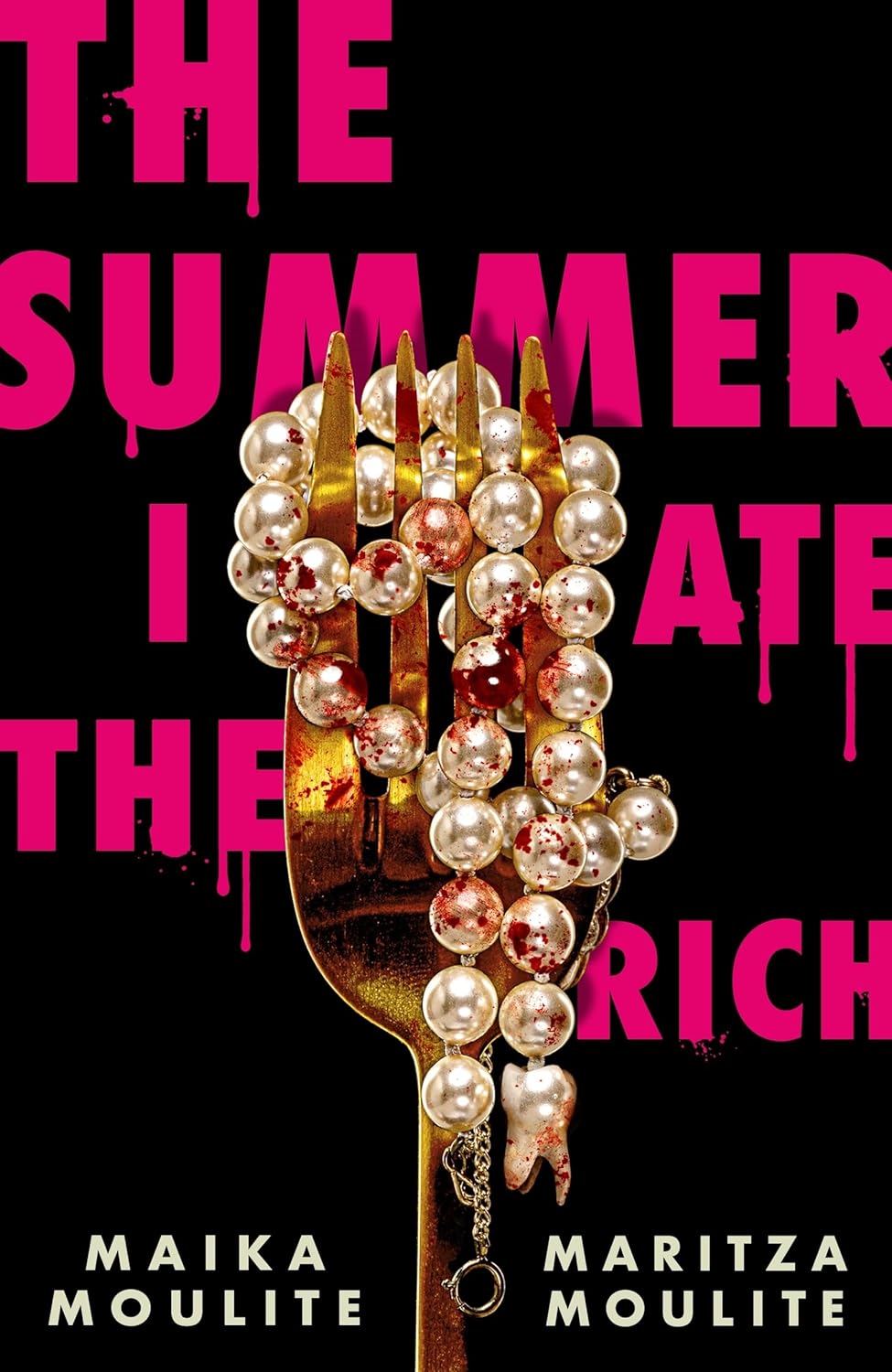...what I am doing is only leveling the playing field. I have claimed my power for myself just as these wealthy people have done time and time again. And I will not feel bad about it, even if I am bending the rules to my will. [p. 319]
Brielle Petitfour is seventeen, Haitian-American, a gifted cook who's planning to start up a supper club in order to pay the bills. Her mother Valentine is in constant pain, and her health insurance won't pay out for the medication she needs. Brielle's father is out of the picture, and isn't the father of her half-sisters in Haiti, who form a Greek chorus (they're named after the Muses) to contextualise Brielle's family history. Brielle's best friend Marcello, also a chef and helping with Brielle's supper club, is expected to go into the family business: his grandmother runs a funeral parlour, which for complicated reasons is popular with the wealthy of Miami.
All of these factors -- plus a second-hand phone, a road accident and a teenage romance -- come together when Brielle's mother loses her job, and Brielle's supper club (with recipes including ingredients purloined from Marcello's family's business) becomes a sensation.
Brielle makes no bones (haha) about being a zonbi: she's not the lumbering brain-craving monster of American horror (though the opening scene is a detailed description of preparing cow brains for dinner) but an individual with an acute sense of taste, a gift for butchery, and a certain amount of innate magic. Her 'intention' not only makes her cooking delicious, but it can influence those who eat her meals. And she's extremely attuned to the chasm between her life and the lives of the rich families who employ her mother, compete to host her supper clubs, and hoard their wealth rather than helping others.
I liked this a lot. Brielle is a charismatic and relatable character whose morality, while different from the norm, is well-defined. She's loyal to friends and family, resilient, and capable of standing up to a hell-boss. I wasn't wholly convinced by the romantic element of the novel, but I really enjoyed Brielle's progress from powerless teenager to agent of change. "I know that I’ll be able to help out more than just my family. Because no matter what anyone says, there’s always more than enough to go around." [p. 382]
In an afterword, the authors (who are sisters) describe the genesis of the novel in their own experience: their mother, like Brielle's, had a pain pump that beeped every few minutes when it was empty -- which is auditory torture for anyone already experiencing chronic pain. They also write about the origins of the zombie myth and how it's been appropriated by American culture. As Brielle says in the novel, "It stems from the fear of slavery. That your existence of forced labor will continue far into the afterlife, white masters lording over you even in the next plane." [p. 28].

No comments:
Post a Comment